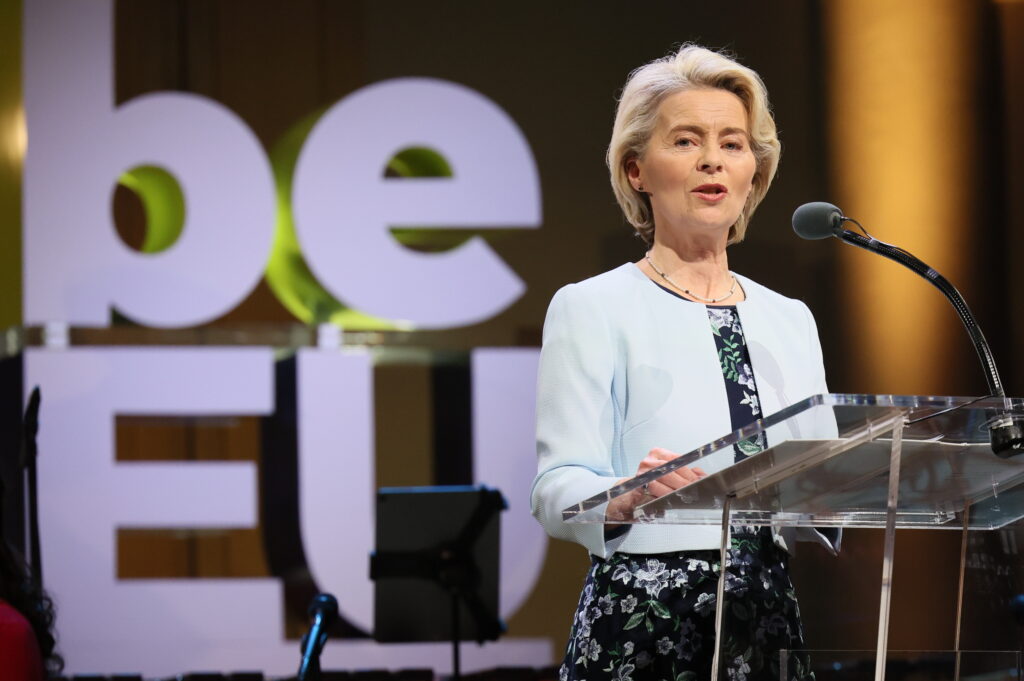EU warms up for fight over economic security
BRUSSELS — With an economic boxing match between China and the U.S. in full swing, the EU is getting ready to put on its gloves. But it isn't going to jump into the ring just yet — to the relief of member countries.
The European Commission will on Wednesday unveil an economic security strategy, promised by President Ursula von der Leyen last summer, to deal with the economic risks stemming from growing geopolitical rivalry. With no less than five initiatives, Brussels is borrowing a concept from the United States and Japan — and repurposing it to meet the needs of the 27-nation bloc.
Brussels wants to protect and promote homegrown technology and industry by taking a more flexible approach to backing innovative research; a common approach on export controls; and screening of outbound investments.
Yet many of the ideas take the form of opinions and recommendations that will take a while to firm up into hard rules. Their chances of taking effect will depend on EU countries that prefer to call the shots on affairs of state — and on the next Commission as the term of the current one is drawing to a close.
Some of the documents on the strategy, obtained by POLITICO, acknowledge as much — highlighting the “full respect” of the EU states' “prerogatives."
“Assessing such risks takes time,” said an EU diplomat briefed on the topic, who was granted anonymity to talk about the sensitive file. “Even if it takes longer, it is good that the discussion is ongoing, so the EU does not just take over or mirror the approaches of others.”
The package is mostly non-binding legislation, with three strategy papers and one proposal addressed as guidance to EU countries. The last one is a revision of existing legislation.
Give me time
After the grand ambitions laid out by von der Leyen seven months ago, the bloc now faces challenges to live up to them.
For instance, Brussels acknowledged it would need more time to consolidate its approach towards a sensitive area for EU countries: screening critical investments from EU companies into third countries. Screening such investments would mean the EU follows in the footsteps of the United States, where President Joe Biden issued an executive order last summer to regulate such transactions.
“There is no actual proposal — it shows that it's more complex than von der Leyen made it look to be,” said a second European diplomat, referring to the ambitious end-of-year timeline set by the Commission chief last June. “It shows a sense of realism; it’s reassuring to member states,” the diplomat added.
Rising geopolitical frictions have pushed the Commission to step up its game on export controls — in the spotlight because of Russia's war on Ukraine and the tit-for-tat chip trade war between the U.S. and China.

Especially after the U.S. pressured the Netherlands to impose restrictions on Dutch chip equipment supplier ASML, calls have grown for an EU-wide approach.
“There’s a need to reinforce the EU’s ability to act internationally in an effective manner,” according to one of the papers.
But even then, the solutions that the Commission is planning to deploy with regard to export controls would still hinge on coordination between the Commission and EU capitals.
With the package, Brussels also seeks to beef up its powers: So far, screening foreign investments is allowed only by a national government in its own territory. But with this proposal, EU countries and the Commission will be able to prod other members of the bloc about transactions raising their eyebrows. This so-called “own-initiative procedure” will boost the instrument’s cross-border use.
Back in Brussels, the Commission has the same power to investigate investments it suspects a national government has overlooked. The country receiving the investment will have to cooperate in giving all the relevant information.
Now starts the dance with EU countries to get the package over the line.
“The economy, it’s a battlefield,” Dutch Economy Minister Micky Adriaansens said at the World Economic Forum in Davos when she was asked about the lessons of the ASML case. “I think the policy needs to change.”